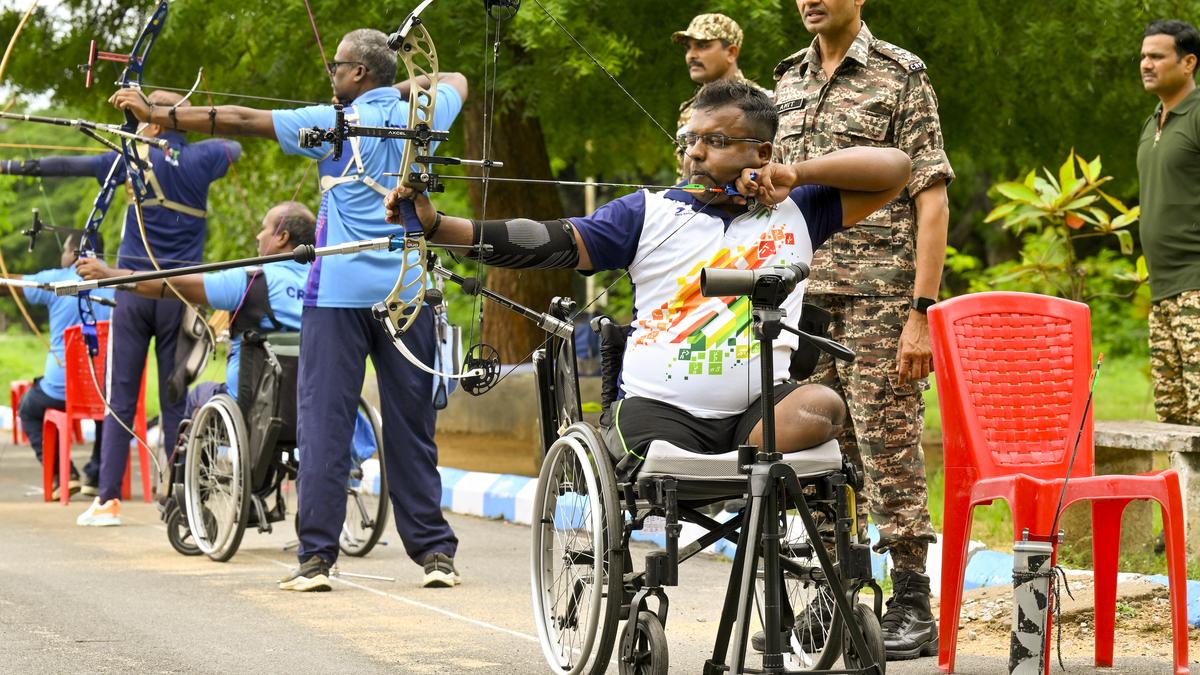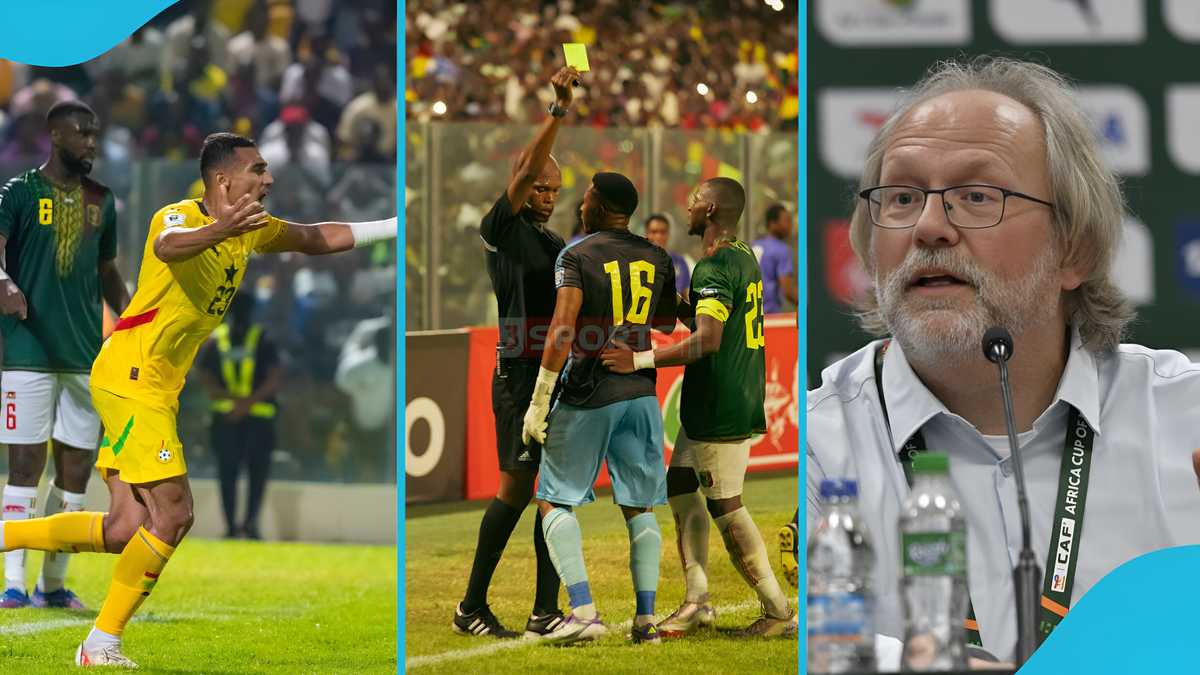Giving warriors a fighting chance: Where personnel injured in line of duty are trained to become para-athletes and IT professionals
By Vijaita Singh
Copyright thehindu

Until a year ago, Amit Kirtaniya, 33, would tremble with fear every time he heard the sound of a utensil dropping on the floor. The clatter would disrupt his sleep and bring back traumatic memories.
On June 5, 2023, Kirtaniya, a constable with the Central Reserve Police Force (CRPF), and two of his colleagues were patrolling the hills of Bijapur district in Chhattisgarh after receiving information that Maoists were on the move. Suddenly, there was an explosion. “We were thrown in the air in different directions,” Kirtaniya recalls.
The three men lay bleeding on the hill. A few hours later, a rescue team arrived and flew them by chopper to a government hospital nearby.
The area had been filled with Improvised Explosive Devices (IED), Kirtaniya says. Having stepped on one, he lost both legs, sustained 95% physical disability in his right arm, and lost vision in his right eye.
“A day later, I was airlifted by an air ambulance to Delhi’s All India Institute of Medical Sciences (AIIMS) where I was admitted for 15 days,” he says. “I was awake and conscious. The doctors sought my permission to amputate my legs above the knee. I had watched a viral video which gave me hope that I would be able to walk again with artificial limbs. So, I agreed.”
The CRPF, one of the seven Central Armed Police Forces (CAPF) in India, helped him get artificial limbs last April at the National Centre for Divyang Empowerment (NCDE) in Hyderabad. Divyang, which means divine body part, was a term introduced by Prime Minister Narendra Modi in 2015 to refer to persons with disabilities.
Located at the CRPF Group Centre in Hakimpet, on the outskirts of Hyderabad in Telangana’s Rangareddy district, the NCDE is the only facility of its kind in the country. Conceived by former CRPF chief, Dr. A.P. Maheshwari, and inaugurated in December 2020, the NCDE is an exclusive facility for training CAPF personnel who suffer injuries and become physically challenged in the line of duty. In just five years, the NCDE has trained over 219 ‘Divyang warriors’, as they are called on campus, producing medal-winning para athletes and skilled IT professionals.
Infrastructural support
The NCDE has a sprawling campus. It has about 180 barracks, each divided into 10×10 feet cubicles fitted with a table, chair, wardrobe with adjustable handles, a motorised bed, a shoe rack, and a window. Of the barracks, more than 100 are wheelchair-friendly, complete with attendant support. It is common to see Divyang warriors rise from their wheelchairs to salute superiors.
The campus is equipped with wide ramps and elevators, and motorised buggies and vans to ferry trainees across its grounds. A hospital behind its main complex was built to handle emergencies. The Renault Group, a French multinational automobile manufacturer, has pledged motorised wheelchairs, sports chairs, and a bus by November 2025, signalling further expansion of mobility support to the personnel on campus.
Kirtaniya says the artificial limbs were uncomfortable at first, but have now become a part of him. “I remove them while resting or sleeping. It takes 5-7 minutes to wear the entire gear, which requires servicing too. In the monsoon season, the equipment retains moisture and needs further maintenance,” he says.
The constable, who used to trek for miles in jungles wearing a bulletproof jacket and carrying a gun, has been training to be an archer at the NCDE for the last one and a half years. His batch consists of 20 trainees. Seven of them have already been selected for national games ranging from archery to discus throw. The trainees are also provided skill development classes in IT, which are run in collaboration with BITS Pilani.
Kirtaniya’s efforts have resulted in some success. The father of two children won two medals — a bronze and a silver — at the Khelo India Para Games this year. He is happy, but says he misses the jungles. “I trained to be a fighter, but now I am a sportsperson,” he says.
The physical training infrastructure at the campus is comprehensive. A ramp leads to a fully equipped gym, tailored for the needs of persons with disabilities, with specially designed machines calibrated to their strengths and requirements. Physiotherapists guide them through sessions that focus on improving gait, strengthening arms, and shedding excess weight gained during recovery. Separate physiotherapy rooms offer focused exercises to restore mobility.
At a meditation hall, two daily sessions of deep relaxation, mindfulness, and progressive muscle relaxation are conducted to reduce stress, anxiety, and minimise trauma. The counselling wing, led by specialists, focuses on post-traumatic stress disorder and trauma care. The wing also often handles cases of candidates who feel suicidal.
“Our goal is to instil confidence in the people here so that they can lead a dignified life even with a physical disability,” says Dr. K. Nagarjuna, a clinical psychologist at the wing.
The risk of dangerous operations
The CRPF is the main force deployed for anti-Maoist operations. In the 38 districts in India affected by Left Wing Extremism (LWE), 15 were located in Chhattisgarh in 2024. Following a directive by the Union Ministry of Home Affairs, security forces have intensified operations in LWE-affected States, particularly Chhattisgarh, since 2023. Continuous operations have led to a sharp decline in LWE-affected districts from 126 in 2013 to 18 districts in April 2025. Four of the six most affected districts are in Chhattisgarh, according to data from the Ministry.
However, these operations have also led to many grievous injuries. Since 2016, at least 46 CRPF personnel have lost limbs in IED explosions in LWE-affected areas. In 2023, 10 personnel had to undergo amputations as their limbs were damaged in explosions.
On July 27, Union Home Secretary Govind Mohan said that CAPF personnel who get severely injured during operations and have to undergo amputation will be allowed to continue in service until retirement with all the benefits. Mohan said the government will ensure that the best medical facilities and technology are available for limb replacement surgery for CAPF personnel.
Until July 30 this year, the NCDE had facilitated the fitment of 106 artificial limbs while 135 fitments are under process. Rehabilitation includes personnel who suffer bullet wounds and injuries from road accidents while on their way to duty or on leave.
According to Veer Raju, Deputy Inspector General, CRPF, who is in charge of the NCDE, the affected personnel are screened when they come to the institute. Based on their level of interest, they are assigned jobs. Some opt for sports, while others help gather intelligence through data mining or monitor social media.
The personnel usually stay on campus for one two months, sometimes with their families. Those who are selected for sports stay on campus permanently. Those who leave, after undergoing tests, get clerical or desk jobs.
“The NCDE caters to the rehabilitation of all CAPF personnel who are injured while fighting LWE, terrorists, or insurgency in the Northeast. One of the most difficult and challenging tasks faced by the CRPF is operating in LWE areas, where Maoists frequently plant bombs to demoralise troops. The injured personnel endure trauma all their lives, so we want to instil hope in them,” he says.
The officer adds that injured jawans have the ‘phantom limb syndrome’, a condition where individuals who have had a limb amputated continue to feel sensations such as pain, as if they still have a limb. “They have to be counselled,” he says. “This syndrome has to be managed systematically and scientifically.”
Raju adds that unlike para athletes born with physical challenges, CAPF personnel have to adapt to the sudden bodily changes. “Some of the injured personnel are now participating in games at the national level and planning to compete in international games. They are soldiers who are determined and motivated. At one point, they stayed in jungles for 15 days at a stretch, walking 40-50 kilometres with weapons and bags weighing 10-15 kilogrammes. That kind of survival strategy comes in handy when they switch to sports.”
Winning medals
Toman Kumar, posted as a constable at the CRPF Group Centre in Raipur, is part of the sixth batch of the NCDE. Kumar’s life changed on February 12, 2022, when he suffered grievous injuries in an IED blast during operations with the 209 Commando Battalion for Resolute Action, an elite special operations unit of the CRPF. His left leg was amputated above the knee, and he was admitted for extensive rehabilitation.
On October 27, 2023, he received his limb fitment at the NCDE. Under the guidance of his coach, Pankaj, Kumar trained in archery and was inducted into the para archery team at the national level in 2024. Kumar won a silver medal at the 13th All India Police meet, a gold and two silver medals at the 6th Para Nationals 2025, and a silver at the 2nd Khelo India Games 2025. He ranked seventh at the European Para Archery Cup in Rome, eighth at the Asian Para Archery Championships in Beijing, and fourth at the Para Archery World Ranking event in the Czech Republic. Now, all eyes are on him at the ongoing World Archery Para Championships in Gwangju, Korea. The centre has arranged a live link to watch him perform, and anticipation runs high.
A senior government official says CAPF personnel have to be physically fit to be eligible for promotions. After a CAPF personnel is injured in an operation, a medical board is constituted to decide if they are employable with the existing disabilities. “If the board decides that the personnel are not fit to continue in service, they are compulsorily retired but are given full pension and other financial entitlements. However, if the board rules otherwise, they are accommodated in other roles,” says the official.
The official says good quality prosthetics are expensive. Often the reimbursement of the cost incurred is according to the rates decided by the Central Government Health Scheme (CGHS). The CAPF’s welfare fund was used to meet the shortfall, but this was not found to be enough as the CGHS rates for prostheses have not been changed since 2014. In April, the government decided to use the money from the Bharat Ke Veer platform, launched by then Home Minister Rajnath Singh in 2017 to help the families of paramilitary personnel killed in combat operations. It was registered as a trust in 2018 and the donations were exempted from income tax.
The beginnings
Former CRPF Director General A.P Maheshwari, who started the NCDE, says, “In 2012 when I was posted as an Inspector General with the CRPF, I met a jawan who lost both his legs in an IED explosion in Jharkhand. When he was offered compensation, he asked me, ‘What will I do with the money?’ Sometimes they were assigned roles as telephone operators or they were made to sit at a ration shop. That is when I decided that something should be done to give them a dignified life.”
Maheshwari says it took another eight years for NCDE to materialise. Now it serves as a single-window system to address the grievances of physically disabled troops. He says it was a matter of concern that an increasing number of personnel were losing limbs on duty. And while the government was providing a financial package for them, the real challenge was to re-employ them as many were being “boarded out” due to the physical disabilities. “That also had an adverse psychological impact on other soldiers who thought that if they lost their limbs, they would also be in a similar position,” Maheshwari says.
The officer adds, “While there were efforts by the government, they were decentralised. Depending on the rank, the personnel had to run from one office to another to get medically examined, get the limbs sanctioned. Now, everything is available at one centre. The idea is that they should not feel helpless or worthless.”
Sanjit Singh Rawat, who has been training the para-shooting team for the past two years, says, “I used to train able-bodied athletes earlier. I find that para-athletics have stronger willpower. We train them to improve their mental strength and also focus on their wellness.”
Aiming high
Constable Ramanuj Kumar, 33, was a navigator. His job was to lead the team with the help of GPS coordinates. On June 14, 2020, he stepped on an IED in Chhattisgarh and lost his right leg below the knee.
“I saw my leg fly in the air and fall into the bushes. The other leg was badly injured. More than pain, I remember feeling a burning sensation. While one leg was cut below the knee, the other was amputated above the knee. Initially, I fell down multiple times from my bed. I used to wake up at night to go to the bathroom or to fetch water thinking I still have legs,” Kumar says.
The constable has embraced shot put and discus throw as part of the “second innings” of his life. The gym and physiotherapy facilities at the NCDE, with specially designed equipment and a separate physiotherapy room, have helped him strengthen his arms and improve his gait. He also attends meditation sessions.
“I do not want friends and family to look at me with pity. I came to the NCDE and took to sports. When they were screening me for eligibility, I used to rank last in the games. I told myself, ‘If others can do it, why not me?’ With practice I improved and I have won five medals at the national level,” Kumar says.
Kumar is also focusing on strength training. “Since I go to the gym regularly, my prostheses also require frequent servicing and maintenance. After getting artificial limbs, and due to the uneven structure of my legs, I initially faced trouble while balancing my walk, but I am used to it. I want to go international now. I know it’s a long way but I am working towards it,” says Kumar, whose display picture on WhatsApp shows him posing in the forests of Chhattisgarh in a camouflage uniform, wearing ankle-length boots and holding an AK-47 rifle.



